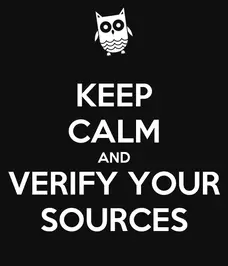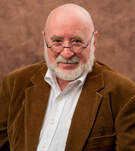|
by Dr. Denny Wilkins We are at war with information. We are continually assaulted by misinformation, disinformation, and reality-based information in amounts the human brain is ill equipped to accept, sort, analyze, and convert into knowledge. Right now, it seems all our addled brains can do in the face of a media pandemic is choose sides. Whom do we support? Joe Rogan and Spotify? Or Neil Young and Joni Mitchell and the artists sure to follow in yanking their music off Spotify? Whom do we support? Donald Trump and his 30,000 false and misleading claims — i.e., lies — during his term as president? Or do we support the fact-based reporting of journalists of long standing and experience? Do we support Republicans? Or Democrats? Do we support authoritarians or practitioners of democracy? Are we New York Knicks fans? Or Brooklyn Nets fans? In virtually all walks of life, we choose sides. What we may not realize is we are undergoing tests of loyalty. As I age, I increasingly ponder loyalty. Most of us, I suspect, have a too simplistic understanding of loyalty. Perhaps it’s a vague feeling we’d crawl through burning oil and run across broken glass because the person to whom we are loyal needs it. And that person never asks; we merely give unreservedly. Lately, however, loyalty I have awarded (given? allowed? presented? What is the word that best represents bestowal of loyalty?) has been strained. Is it because I have come to expect something in return? A little quid pro quo? If that attitude has emerged in me, I am saddened. But it has. I am human: I have done for others without marked compensation or gratitude for so long … but now, am I finally seeking a little sugar for my faithful attention? After all, what has Spotify done for me? Have Neil Young and Joni Mitchell done more? What’s in this choice for me? “I used to advertise my loyalty and Loyalty, for me, had always been freely given with no expectation of reciprocity. Either in an instant, or over time, I had become loyal to you. You owed me naught. But 80 years old is no longer a distant horizon. Has the erosion of physical ability or the emergence of emotional and intellectual insecurity altered that equation? Do I now need something, somehow, from an individual or institution that has received unqualified, unquestioned loyalty from me? What’s in this exchange for me? A half a century ago, a friend sent me a telegram from half a continent away. “I need help,” it said. I replied: “En route.” I fired up my old LandCruiser and drove 1,800 miles through winter’s wrath to get to him. Loyalty? Obligation? Duty? All, perhaps. But if that same friend asked today, would I? No. The loyalty, the obligation, the duty have faded. Why? My friend went his way; I went mine. Connections frayed. Neither of us is to blame; life connects and disconnects. My adoration for the Celtics of Bill Russell, John Havlicek, Larry Bird, and Kevin McHale has faded as the Celts’ playoff runs have fallen into obscurity. What have they done for me lately? “We have to recognize that there cannot be relationships unless there is commitment, unless there is loyalty, unless there is love, patience, persistence.” Usually, when young, we begin life with numerous connections. Friends galore: Hale many fellows, well met. After my discommodious departure from a university eons ago, I returned for a weekend visit the following autumn with a list of 50 names. By the following spring, only three names remained. Today, one is left. When she calls, and she has, I text: “En route.” Without question; without animus; rather, with the compulsion of love. Loyalty given young can last until … well, death. But loyalty, while deep, can be fragile. Often, it cannot bear the weight of passing time. Or the reality of facts painfully learned. Loyalty might be born in the fire of anger (e.g., Trump’s MAGA base). I find it difficult to hate (but rather easy to be irritated). But two decades ago, I met a man who so frequently angered me I grew to hate him. Time eased that. Today, my loyalty to that person is unshakeable. But, I think, unlike the blind award of loyalty by one person to another, this differed. He contributed to the exchange. He made the bestowal of loyalty possible because his award was congruent with mine. “If by my life or death I can protect you, I will." The list of people (and institutions; I am no longer loyal to today’s feckless Democrats) to whom I am loyal has dwindled. But the ferocity of the loyalty I retain for those remaining few has not dimmed. Why? I do not know. I have only questions. Is the bestowal of loyalty a form of received wisdom? Did our teachers, parents, and clerics teach us that loyalty is a virtue and ought to be freely given without question? (Hell, that attitude died when at age 12 I kissed Charlotte and she told all her friends it was awful.) Should I bestow loyalty to my country without question, even to the point of shouldering arms and killing for it because a civilian leader says I must? Many do. They fight and often die. We honor them when they return, often wounded, often dead. “I don’t care a damn about men who are loyal to the people who pay them, to organizations…I don’t think even my country means all that much. Should I bestow loyalty to an idea in the weight of overwhelming evidence that the idea is wrong? Pick your poison here: Creationism, intelligent design, a 6,000-year-old Earth, a flat earth, various alleged causes of autism, the claims global climate disruption does not exist, and so on. The reverse is true: How steadfast should my loyalty be to those who believe anything on that list? Loyalty can be as blind as it is deep. Should I remain loyal to a president whose deeds belie his words? Nixon, Reagan, either Bush, Clinton, Obama? Trump? (“I am not a crook.” “I did not have sex with that woman.”) Humans are fallible, particularly political men (and women, e.g., Marjorie Taylor Greene). I am an American. I remain loyal to a Constitution, however flawed it may be, that determines my rights and responsibilities as a citizen. But I am not compelled to bestow loyalty to those whose fealty to oath of office to that Constitution is flawed. “I would say exploit the stupid, because they’re expendable and loyal, but it’s a fact: politicians are not loyal.” Should I remain loyal to the men and women in the three branches of that government who have, I believe, shown more loyalty to service to the electorate — and me? Yes. But, to be blunt, no effing way must I be loyal to the politicians who ordered those service men and women into harm’s way with little possibility of “victory.” How little loyalty such civilian leaders have shown them — and the larger us. Edward Snowden is an American. Many call him a traitor. How should we measure his loyalty? To the rule of law? Or to the spirit of the Constitution, which compels citizens to continually question those who govern the governed? Loyalty, as I age, is fast moving into a tie with love as the most confusing of human values. That the two — loyalty and love — have indistinguishably commingled both comforts and vexes me. No words of analysis live here, only a compounding confusion. I treasure loyalty; I reward it; but I … damn it … increasingly feel the need to be rewarded for it. It is selfish, but is it understandable? And is it forgivable? “It gives me strength to have somebody to fight for; I can never fight for myself, but, for others, I can kill.” Screw the Yankees. I’ll always stick with my beloved Red Sox.
3 Comments
 by Athena Godet-Calogeras Many of us can remember the time when research of any topic often involved hours perusing tomes of books and magazine articles in a local library or university. No longer. Now, comfortably ensconced in front of a computer, iPad, or smart phone, we simply key in pertinent words and, voilà, links related to our subject appear! The world of information is just a click away — for better or for worse. We’ve gone to cyberspace for the best recipe for a particular dish, for advice on how to treat an injury, for suggestions on how best to lose weight, or gain it, for uses and limitations of certain medications, and on and on. The cyber library of information is immediate and can be useful if we know how to decipher and choose valid sources; critical thinking is a necessity. A public health case in point can illustrate the critical need for reliable information: the outbreak of measles and other diseases prevented by vaccination. Although measles was declared eliminated in the United States in 2000, almost 1,300 cases of measles were reported in 31 states in the U.S. in 2019— the greatest number since 1992. This is a disease that a sneeze can send a virus lingering in the air for a couple of hours. Why did the U.S experience the worst outbreak of measles in more than 25 years and the recurrence of other diseases preventable by vaccination? Possibly because more people are refusing vaccination. We can offer the same rationale for the two year (thus far) dominance of COVID-19.  When in 1796 Edward Jenner demonstrated that inoculation with material from a smallpox lesion could protect against further exposure to the disease, the vaccine era was born. A hundred years later, there was a vaccine against rabies. Last century many new vaccines were developed, and thousands of potential deaths from preventable diseases were averted. The Center for Disease Control (CDC) considers vaccinations as one of the greatest public health achievements of the 20th century. In this author’s experience, Salk’s polio vaccine was welcomed as a godsend, ending the tragedy of paralysis or death from the feared disease. Prior to the 1950s, some 15,000 people were paralyzed by polio each year. With the production of the vaccine, hundreds would line up for the injection, and later for the medicated sugar cube (the oral vaccine developed by Sabin. “Sunday Oral Sunday” publicized the day it was distributed). Since the 1950s, vaccination against certain diseases has been mandatory in schools and advised for others. Parents and their physicians follow a schedule of immunization. Yet, there have always been individuals who discount or disregard scientific and other reputable evidence. If someone gets vaccinated and afterwards contracts a disease, the vaccination is the culprit. In 1998 a British doctor, Andrew Wakefield, said that he had found a relationship between the vaccine given for measles, mumps, and rubella (the m,MMR vaccine) and autism. His study involving 12 children concluded that those vaccines taken together could alter immune systems leading to brain damage — and autism. Numerous epidemiological studies followed, debunking the doctor’s work. Later, British authorities stripped Dr. Wakefield of his license. Whom and what can you believe in cyberspace? Here are some guidelines:
Not heeding information from reliable sources can endanger one’s health as well as that of others.
|
Archives |


 RSS Feed
RSS Feed